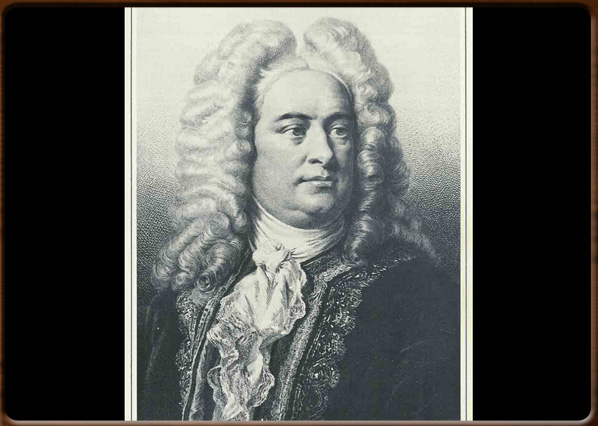
G. F. Handel

No video
Georg Friedrich Händel (Halle in Saxony 1685 - London 1759) was one of the greatest composers of the 18th Century.
A true musical genius, at the age of just 17 he became first organist in the Brandenburg cathedral orchestra.
In 1703, after specialising in violin, he moved to Hamburg, where he presented his first opera, Almira, in 1705.
Then, in 1706, he set off for Italy and spent the next three years touring the country and visiting Venice, Florence, Rome and Naples.
During this time he wrote a few cantatas, influenced by his contacts with the musicians at the Accademia dell'Arcadia. He then embraced his long career as an opera writer, lasting some 30 years, during which time he produced some 32 operas.
One of these, Agrippina (1709), a drama for music in three acts to a libretto by Vincenzo Grimani, was premiered at the Teatro San Giovanni Grisostomo in Venice on 26th December 1709. It was a great triumph and established Händel as a leading opera composer. The Teatro San Giovanni Grisostomo was Venice’s number one theatre at the time and Agrippina ran for six weeks, with the enthusiastic Venetians crying out “Viva il caro Sassone” (Long live our dear Saxon).
In 1713 Händel moved to London, where he was to settle for the rest of his life. There he was appointed head of the Royal Academy and staged many successful operas and ballets at Covent Garden and the King's Theatre. In 1741 he dedicated his efforts to sacred compositions, especially oratori like Israel in Egypt and Messiah. Händel "oratorios" were a benchmark for all future choral symphonic music.
In the 1800s even Beethoven and Brahms still adopted certain aspects of Händel’s style, from vigorous dramaturgy to the incisiveness of the instrumental and polyphonic-vocal score, the ability to mould and highlight the choral sections and the ability to pass from majestic music to sweet, seductive pastoral melodies.
1600 - 1700 - - rev. 0.1.7